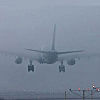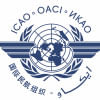Biman U-turns to buy Airbus planes
In January this year, Biman found that it would be making massive losses if it bought two Airbus A350 planes.
On April 22, a new appraisal committee took over the evaluation and, in only three days, concluded that it would be a profitable venture.
The Biman board has even given the go-ahead for the procurement of four Airbus planes, each costing around $180 million, based on the new calculations.
On multiple occasions throughout last year, Bangladesh gave its word that it would buy Airbus planes.
The final memorandum of understanding, which comes with a hefty non-refundable $5 million commitment fee per plane, was hinging on this techno-financial evaluation.
The national carrier would have to undergo an accumulated cash shortfall of up to $463.08 million throughout the lifetime (25 years) of the planes, the previous committee found after studying a proposal for six months.
Five months later, the evaluating committee was reconstituted by the Biman board, and the former head of the committee, Biman's engineering director, was changed. According to the board meeting minutes, the new committee was given three days.
The committee submitted a report on April 25 saying that buying two Airbus planes would be profitable. To achieve this complete U-turn, it based its calculations on a cabin factor that Biman has never been able to achieve -- up to 92 percent.
Cabin factor refers to the percentage of the seats filled on average.
This allowed the second committee to show increased revenue by 20 percent when compared to the evaluation of the previous committee.
In addition, the second committee said the Airbus planes would be profitable on only two routes – one of which is Dhaka to JFK Airport in New York.
Bangladeshi carriers have not been able to serve this destination since the US Federal Aviation Authority placed the Civil Aviation Authority of Bangladesh in its Category 2, after finding irregularities in its operational activities in 2006.
The new evaluation also estimated a decreased jet fuel cost, which added about a quarter of the increased revenue shown.
Fuel prices have historically been volatile. Statistics from the International Air Transport Association show that post-pandemic prices of jet fuel are significantly higher than pre-pandemic prices.
The first techno-financial evaluation committee said, "Based on the financial evaluation, the two A350-900 aircraft are not financially viable over the next 25 years as the net present value is found negative."
Net present value shows whether an investment will be profitable or not over a period of time, and is calculated considering all future cash inflows and outflows.
The second committee, however, calculated significant operational profits from the second year.
But the first one said, "Revenue generation compared to the cost is low due to poor yield.
"Huge initial investment is projected for payments for spare engine, spare-parts, tools/equipment provisioning, cockpit crew/engineering training and other setup/transition costs, due to dissimilar equipment and small fleet size."
In addition, the first report said the interest cost was reported to be very high.
The second committee says operating the Airbus A350 on the Dhaka-New York route, three times a week, with a stopover in Istanbul, and daily on the Dhaka-Jeddah route, can generate a profit of $135.34 million over 25 years.
The same routes were evaluated by the first committee, and it found that Biman would lose $188.37 million over the lifetime of the planes.
The second techno-financial committee did not find the planes to be profitable on other routes, like Dhaka-Singapore or Dhaka-Rome, and both committees squarely found those to be making losses between $249.4 and $463.08 million over the planes' lifetimes.
The revised financial projections calculated profits based on estimates that in 2026, the cabin factor on the Dhaka-New York route would be 78 percent and by 2050 it would be 90 percent.
Similarly, it estimated that in 2026, the Dhaka-Jeddah route would have a cabin factor of 85 percent, and it would climb to 92 percent by 2050.
Biman's average cabin factor on international flights was about 76 percent last year, said Biman insiders, pointing out that this cabin factor was rather low since Biman usually flies high-demand routes only.
The second committee called their estimates "optimistic, but achievable".
After it submitted its preliminary report to the 305th Biman board meeting, the board formed another committee to negotiate the price; obtain permissions from the civil aviation ministry for signing an MoU; and proceed with the purchase, according to the Biman board meeting minutes.
Biman incurred a loss of Tk 25.91 crore in its main business, flight operations, in the last fiscal year, showed a report by the commercial audit directorate submitted to the parliamentary standing committee on aviation this month.
Biman is losing money on almost all of its 22 international routes, including the newly added Tokyo, Rome, and Guangzhou.
It makes money only on flights to Jeddah, Singapore and Kuala Lumpur, said Biman insiders.
It garnered a net profit because its other services were profitable. These include ground and cargo handling at the Hazrat Shahjalal International Airport, catering, and even its farm, Biman Poultry Complex.
Both evaluation committees pointed out that going to a mixed fleet from a Boeing-based fleet would require some major expenditures.
While Biman estimated that it would take $80 million for them to make this transition, Airbus rival Boeing calculated that figure to be $146 million.
"Biman is already facing a significant shortage of crew in all its fleet. A new type of aircraft demands a new setup of pilots, exclusively for the A350. The crew of present fleet can never be used in Airbus unless trained to do so [...] To withdraw crew from the present fleet to fly Airbus aircraft, Biman will have to either suspend operation in different routes or reduce frequency in different sectors," said the second committee which recommended buying the planes.
"Recruiting fresh crew to solve this crisis will have no impact as experience is of vital importance in aviation and there is no shortcut way to gain experience," it added.
Biman will have to train engineers and mechanics for up to two years before the introduction of the Airbus aircraft, said the second committee. While they arein training, third parties would need to be hired for engineering and mechanical services in all Biman stations.
The carrier will also have to invest $61.8 million in spare engines and spare parts for just two Airbus planes, found the report.
In order to overcome these massive costs, and still show a profit, the second committee had to project "optimistic" seat occupancies.
While 80-85 percent of the financing for the Airbus planes will be done by a low-interest loan from an export credit agency, Biman will have to come up with the rest, likely to be sourced from high-interest commercial loans.
Between 2019 and 2021, when Biman bought five planes, it was given $550 million from the country's foreign exchange reserves.
On May 5 last year, a joint communique was signed by Lord Dominic Johnson, UK minister of state in the department for business and trade, and Salman F Rahman, private industry and investment adviser to the prime minister, in London regarding the purchase of eight Airbus A350s and two freighters.
During French President Emmanuel Macron's September visit to Dhaka, he said Bangladesh committed to buying 10 Airbus planes.
But all of this happened even before Biman carried out a viability study on such a purchase, and the first techno-financial committee was formed after the decision to buy Airbus planes was made.
Biman board on May 3 last year, decided that the purchase of planes could only happen after a technical and financial evaluation. The board did not insist on a particular airframe maker, saying that Biman could buy "Up to eight Rolls-Royce powered A350-900/1000 aircraft (the "A350 Pax Aircraft") or any other suitable aircraft (wide or narrow) as per Biman's requirement."
The joint communique pledging Airbus purchases was signed two days later.
The second committee report also said, "The techno-financial committee is assigned to evaluate the proposal of Airbus's aircraft only. Thus, it could not compare A350 or A330 aircraft with comparable aircraft of other manufacturers."
An unevaluated proposal by Boeing has been on Biman's table, Ryan Weir, Boeing's vice-president for the department of commercial sales and marketing in India and South Asia, told journalists at a hotel in the capital this month.
Biman Managing Director Shafiul Azim, who would be leaving the carrier this month, said, "We are in a process of evaluating the Airbus proposal at the moment and this is an intensive process. Once this reaches a certain stage, we will evaluate the Boeing proposal too, because we want to ensure that this is competitive."
When asked why a committee had been created to negotiate the purchase of the Airbus planes, he said the committee was yet to give their final decision.

 For all latest news, follow The Daily Star's Google News channel.
For all latest news, follow The Daily Star's Google News channel. 








Comments